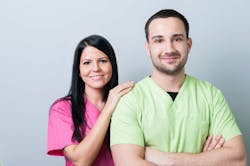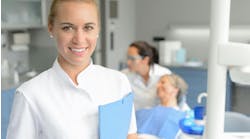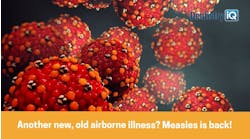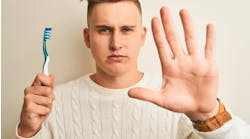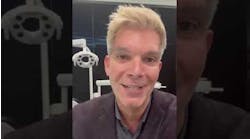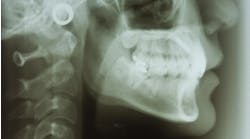WHAT ARE THE POSSIBILITIES FOR DENTAL HYGIENISTS? To answer that question, let’s pull out a tool you probably remember from grade school—the Five Ws and Sometimes How (i.e., who, what, when, where, why, and how).
The purpose of this article is to demonstrate the relationship of oral health to systemic health and why RDHs are the ideal professionals for management of the mouth in all health-care institutions.
Access to care issues in the United States are widely known and discussed in literature. There is a solution! There are professionals trained to provide preventive services in dental care (RDHs!) and guide other health-care professionals on implementing oral health education and strategies. This is similar to the collaborative work between occupational, speech, and physical therapists who work with families and other practitioners to get patients up and moving again. In dental hygiene, the goal is optimal oral health achievement.
Take a look at the possibilities below. Maybe some of them will pique your interest, whether you’re a new grad or a seasoned veteran. This list is intended to be a starting point to inspire you.
Who (the dental hygiene professional)
Registered dental hygienists; licensed dental hygienists; primary prevention specialists; oral health promotion and preventive providers
Who (the patient)
Older adult (66+)
Concerns: Immune function decreases; cognitive decline; lowered oral health literacy; polypharmacy; chronic illnesses; speech; dietary needs
Adult (30–65)
Concerns: Sleep disturbances; CPAP use and adverse oral effects; CPAP alternative awareness; menopause and other hormonal changes; decreased cardiac output and increased vascular resistance after age 30
Young adult (21–29)
Concerns: Preparation for healthy pregnancy; oral health education and literacy (this patient may be taking charge of his or her own health appointments for the first time and likely identifies with a healthy lifestyle, so education is important)
Adolescent/teens (13–20)
Concerns: Puberty; contraception; HPV vaccination; education on infectious oral diseases; tooth decay; nutrition; postorthodontic care; allergies Celiac disease
Children (4–12)
Concerns: Education for a lifetime of oral health, including parental guidance; oral health habits; dietary choices; speech; tonsils/adenoids; ADHD; autism, medications; mental or physical disabilities
Babies (0–4)
Concerns: Streptococcus mutans; diseases of the middle ear (otitis media); baby bottle decay; thumb sucking; pacifiers; tongue thrusting; and parental education
What: oral-systemic health, whole-body dentistry
Neurological and autoimmune disease
Stroke; traumatic brain injury; multiple sclerosis; Parkinson’s; Alzheimer’s; dementia; hydrocephalus; cognitive function; the autism spectrum
Cardiology
Heart health; changing premedication guidelines; periodontal link to heart disease; use of blood thinners
Respiratory/pulmonary system
Aspiration pneumonia; community-acquired bacteria, viruses, and fungi
Endocrine system
Diabetes; Crohn’s disease; hormonal disorders
Gastrointestinal system
Mouth odor; acidity
Pharmaceutical/oral medicine
Hyposalivation; blood thinners; in-office dispensation of drugs; collaboration of antibiotic use across health-care providers
Musculoskeletal system
Hip, knee, and total joint replacement; deep vein thrombosis
Integumentary system
Skin checks on head, face, neck, and for signs of abuse; sun protection (e.g., hats, sunblock); observance of the vermillion border and macula
Oncology (in any system)
Oral cancer; head, neck, or breast cancer; radiation; chemotherapeutic drugs; xerostomia; mucositis; salivary blockages; aphthous ulcers; weight loss; dentures
Pediatrics
Signs of abuse on arms, legs, and face; speech or myofunctional therapy; ADHD; problems with tonsils and adenoids; sleep apnea
Pregnancy
Transmission of caries and periodontal diseases; prevention of bacteria crossing placenta; blood-brain barrier; awareness of products that are unsafe for pregnancy
When
One word: now!
Here are just a few cases where your expertise may be needed: acute or chronic diseases with new oral manifestations; oral home-care modifications; speech and swallowing changes; polypharmacy; decreased immune function; changes in cognitive function; weight loss
How
Once you recognize ways your expertise can he used, here are few concrete ways you can contribute.
- Working for an elder oral care service (e.g., HyLife)
- Political advocacy
- Nutrition services for patients
- Make referrals if needed (e.g., for signs of implant failure)
- Adjuncts/modifications (e.g., chlorine dioxide, Closys Silver, power brushes, Xlear Sinus Spray for otitis media)
- Training other dental professionals (e.g., prevention, modalities, risk assessments)
- Salivary diagnostic testing
- Personalized oral health lifestyle modifications (a new grip on the toothbrush may work for one patient, but not the other)
- Helping patients relearn how to hold a toothbrush after a stroke or traumatic brain injury
- Teaching caregivers when to perform oral cleaning, what to use and how to use it, and when to schedule oral evaluations
- Salivary risk assessments
Why
Why do we care? There are many reasons, and these are just a few.
- You can set children and babies up for oral care success
- Improved self-esteem (your own and your patient’s)
- Improved community wellness
- Preventing drug abuse
- Meeting family and caretaker needs
- Preventing trouble with dentures and associated weight loss
- Making menopause and hormonal changes easier
- Improving dental disease rates
- Success after orthodontics
- Preparation for healthy pregnancy
- Oral health habit intervention (e.g., thumb sucking, tonsils/adenoids)
- Suggesting dietary choices to promote oral health (e.g., probiotics, xylitol, Mi Paste, Remin Pro)
- Expertise: we should be the ones training the medical profession on mouth care, since we research and are most familiar with the best products for individualized oral health
- Magic mouthwash is the dentists go to
- Financial benefit
Where
Medical
Hospitals, medical specialties; outpatient clinics; rehabilitation; private duty/home visits
Government and non-profits
Prisons; nursing homes; assisted living; non-profits and other charities; for-profit sober living; group homes; senior centers (these have yoga classes, for example, but what about oral health?)
Institutions
Boarding schools; primary and secondary schools; colleges; dental and medical schools; day cares
Miscellaneous
News and radio! I’ve only seen one dental product commercial with an RDH instead of a dentist.
Editor's note: This article first appeared in RDH eVillage. Click here to subscribe.
Elicia Lupoli, RDH, BSDH, is on the editorial board for RDH magazine and Hygienetown, as well as an editor for her state association’s quarterly newsletter (ADHA Connecticut). Elicia attributes the start of her writing career to Shirley Gutkowski, RDH, BSDH, and other success to her many mentors.

